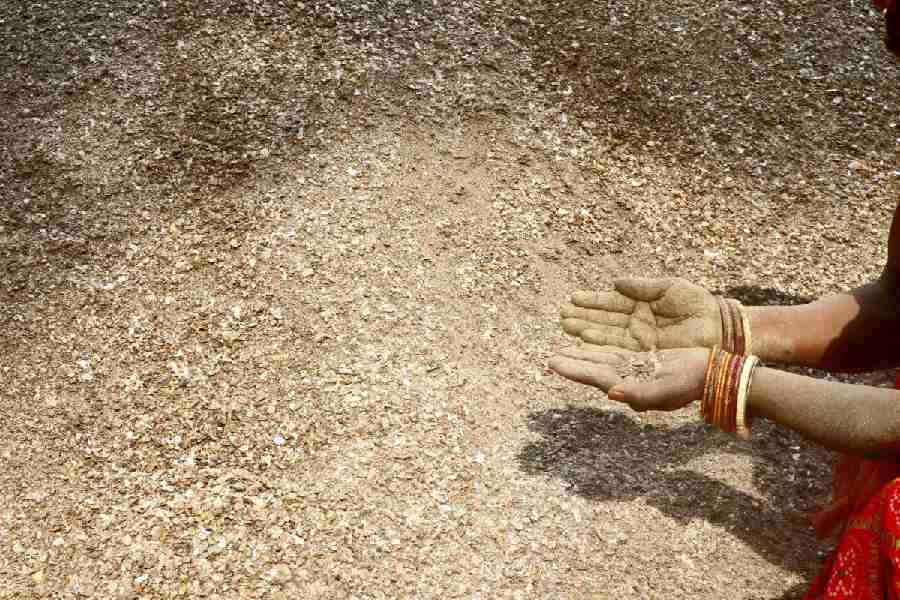Sita Devi (30) has decided to take time out on May 20 to go and cast her vote, even at the cost of going empty stomach for the day. “Neta ko sabak sikhana hai (the MP needs to be taught a lesson),” the Koderma constituent says.
Nearly 5 lakh people in two Assembly segments (Koderma and Dhanwar in Giridih district) of Koderma Lok Sabha seat pick mica scraps or ‘dhibra’ as they are known locally.
Sita and several other homemakers in Dhibor’s Meghatari panchayat would earn ₹200-300 daily by selling the scraps to traders. But then the Centre stopped extraction.
“The state government had in 2023 allowed picking of mica scraps. But the Centre stopped the extraction. Our neta failed to raise the issue in Parliament. We will teach her a lesson this time,” echoes Pramila Devi, 35.
The neta in question is Annapurna Devi, Union minister of state for education and the sitting MP. In 2019, she trounced former chief minister Babulal Marandi by over 4.55 lakh votes and bagged over 62% of the votes polled.
But for the likes of Sita and Pramila, the numbers mean little. They are the ones facing the brunt after hundreds of mica mines under the Koderma forest division were closed decades ago under the Forest Conservation Act, 1980.
“If we do not go to work we have to go to bed empty stomach,” says Pramila. “Several women have been forced to work as domestic help. It has become difficult for our children to study. What can we do with the meagre ration of wheat and rice?”
Ashok Verma, the chairperson of a cooperative society of mica labourers, explained how even after the mines closed down, small pieces of mica present in the soil and stones of the debris kept the mica industry alive for labourers living in the forest areas. “Under Section 3 of the Bihar Mica Act, 1947, this law (Forest Conservation Act) does not apply to pieces of mica up to six square inches. Due to this legal exemption, the picking and trading of dhibra continued without interruption for about 35 years,” he added.
“Then in 2015 during the BJP government (Raghubar Das’ administration), the administration went all out to stop dhibra lifting.”
“Hemantji (former chief minister Hemant Soren) attempted to protect the workers and amended the Minor Mineral Rules to give legality to the trade. The Jharkhand State Mineral Development Corporation was authorised to sell dhibra through auction.
“However, the Centre’s atomic energy department banned work on the pretext of the presence of lithium in the scraps and samples were sent to the Atomic Minerals Directorate for Exploration and Research in Hyderabad. It has been more than a year and we are yet to hear from the authorities,” rued Verma.
Koderma votes on May 20










